A Turning Point in Bilateral Relations
The relations between India and the United States are experiencing one of the most bitter phases of the last 20 years, as tensions mount between the two countries concerning trade, tariffs, and foreign policy alignment. John Bolton, the former National Security Adviser to Donald Trump during his first term in office, has now made a bold statement that captures the scope of this changing direction.
In a recent interview with LBC, a British media house, Bolton noted that whereas Trump and Prime Minister Narendra Modi previously enjoyed a thriving personal relationship, it has since effectively collapsed. He also cautioned that world leaders should not believe that any personal chemistry with Trump, or any US President, can protect against the shocks of policy.
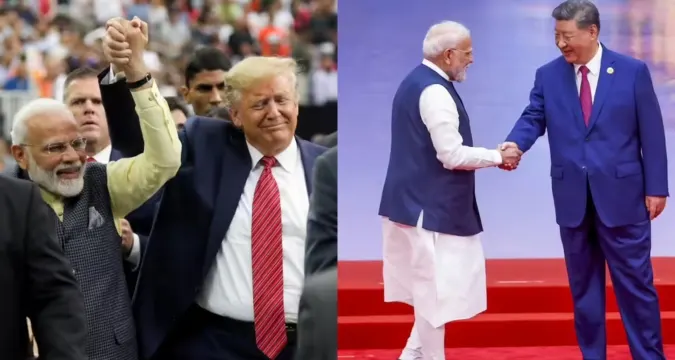
This is especially timely because Washington and New Delhi are trying to reestablish their interaction in the face of increased geopolitical tensions and escalating US-China rivalry. His words emphasize a larger fact about diplomacy: even though personal relations may smooth out relations between individuals, national interests and domestic politics in the long run influence international relations.
Why Bolton’s Words Matter
Trump has been highly criticized by John Bolton ever since he had left the White House. Bolton, a staunch advocate of the hawkish foreign policy approach, has little trouble in choosing language when it comes to geopolitics. His remarks that the personal relationship between Modi and Trump is lost are not merely conjecture.
This erosion is reflected in policy actions:
- Tariff Escalations: The Trump administration has added 25-50% tariffs on Indian products, especially with New Delhi purchasing more Russian crude.
- Energy and Strategic Divergence: India has fallen out of step with the US because it does not see any problems with purchasing oil despite US sanctions against Russia.
- Change of Direction: Who was once welcomed as a friend of India, Trump has over the last few months openly attacked New Delhi, especially regarding trade imbalances and strategic decisions.
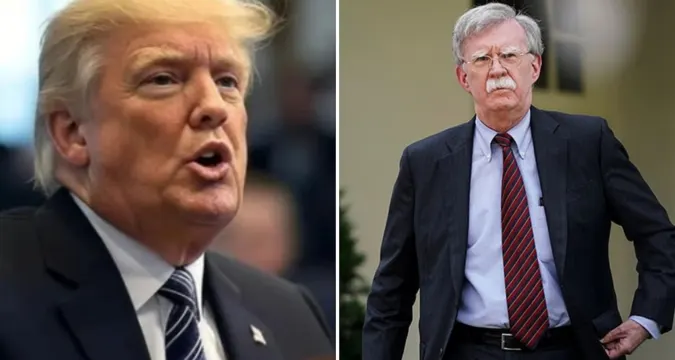
To India, this was a strong change from the previous stages where Trump had spoken highly of Modi as his real friend and been present at the Howdy Modi rally in Houston (2019) as an act of solidarity to the Indian diaspora.
From Friendship to Friction
There were bonhomie moments with the India-US relationship during the first presidency of Trump. In different circumstances, especially when presenting themselves at large diaspora destinations like the Namaste Trump rally in Ahmedabad (2020) and the Houston rally, Modi and Trump tended to flaunt their friendship.
But Trump, Bolton pointed out, is inclined to get personal relationships and national ties confused, a very dangerous simplification. Relationships appeared stronger than ever before, when Modi and Trump were on the same page. But as Trump enters his second term in office and America First approach to trade is reinstated, the fractures have broken open.
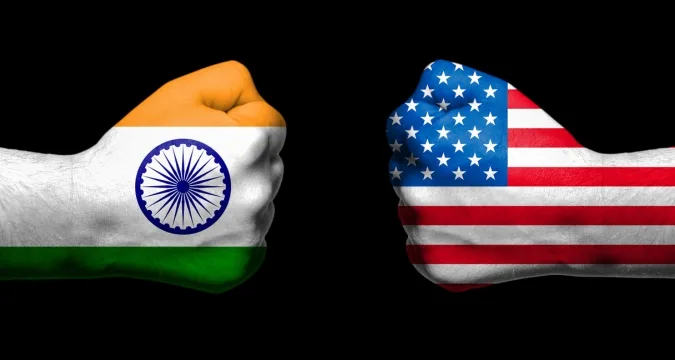
Bolton emphasized: “Personal relationships can work sometimes, but it will not save you in the worst scenario.”
This can be not only applied to India, but also to other leaders such as the UK Prime Minister Keir Starmer, before the planned visit of Trump to London later this month.
The China–Russia Factor
The most important warning issued by Bolton is of the strategic implications of the tariff war on India by Trump. To him, one of the decisions Trump has made has unwillingly led India into involving itself in Russia and China, which Washington has always strived to steer clear of.
US policy over decades has aimed to lessen India dependency on Russia, particularly in military material acquisition and energy resources, and to deepen its collaboration against Chinese rising assertiveness in the Indo-Pacific. But Trump, Bolton contends, has sabotaged years of bipartisanship in his actions.
- Russia-India Energy Ties: India keeps purchasing subsidized Russian oil, which has eased the Indian economy during the global price spikes.
- Defense Procurement: New Delhi has not repealed agreements such as the S-400 air defense system with Moscow under the pressure of the US.
- China Opportunism: Beijing is repositioning itself as an alternative buyer, neither in terms of trade nor in terms of infrastructure, and it is offering itself as less interventionist than Washington.
According to Bolton, he calls this an unforced error, meaning that rather than pushing India with tariffs, the US must have built trust and offered options.
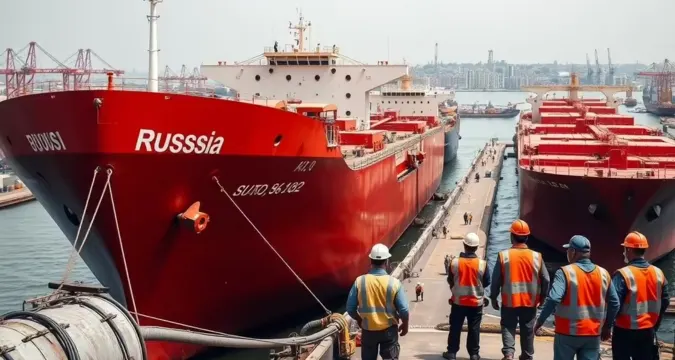
A Reversal of Progress
It began with the slowing progress in the relations between India and the US at the beginning of 2000s and solidified with such achievements as the Civil Nuclear Agreement of 2005 and the establishment of military relationships in the scope of such agreements as the COMCASA and BECA. In Washington, there was a consensus across the two political parties that India was an essential partner in offsetting the rise of China.
The policies of Trump on tariffs, however, are pushing that foundation. Bolton warned, “The relations between the US and India have been rolled back decades by the White House.”
It is more than just an issue of economics, but an issue of perceptions. An increasing concern in the strategic circles of New Delhi is whether the US can be a trustworthy ally when its policies prove to be volatile depending on the electoral politics.
Modi’s Balancing Act
In the case of prime minister Modi, the problem is how to maneuver the multi-aligned foreign policy in India. India, on the one hand, cherishes its strategic relationship with the US, especially in the areas of technological, defense, and counterterrorism collaboration. On the other, its economic and energy interests make it necessary to have relationships with Russia and stay in contact with China.
Another recent effort by India has been to reinforce critical structures such as the quad (India, US, Japan, and Australia); as a form of resistance to the Chinese dominance in the Indo-Pacific. However, when the position of Washington becomes more punitive, there is a possibility that New Delhi will move more towards strategic autonomy, strengthening its non-aligned stance.
Lessons for Global Leaders
Bolton has a larger message than India. World leaders in Europe, in Asia, everyone should understand that personal rapport cannot substitute institutional diplomacy. National interests, structural realities and economic compulsions define international relations, rather than the friendship of leaders.
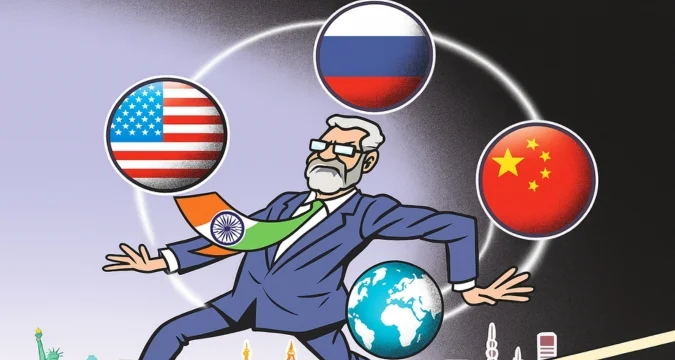
In the case of the UK, where Trump will arrive later this month, Prime Minister Keir Starmer is equally challenged by a dilemma. The pleasant initial meeting might assist in establishing the tone, but London cannot afford to use personal chemistry as the only defense to protect both the interests of trade and security with Washington.
What Lies Ahead?
Despite that, Bolton is optimistic but cautiously so. He explained that the situation can be flipped once again, but it would involve conscious effort. To both Washington and New Delhi, the way ahead could be:
- Recovering Trust: Between dialogue and punitive tariffs.
- Energy Cooperation: Identifying options that will lessen the reliance of India on Russia.
- Re-affirming the Indo-Pacific Vision: making sure that India stands at the heart of the counter balance to the rise of China.
- People-to-People Ties: Utilising the Indian diaspora as a bridge between India and the US has been in the history of the two countries.
The stakes are high. The more the downward trend is completed, the more China and Russia will gain and the balance of power will be reconstructed in Asia.
Conclusion
The sheer willingness of John Bolton to admit that he believes the personal relationship between Trump and Modi is now over is not merely an evaluation of the two leaders but serves to warn that diplomacy in the modern world is too fragile to stand in the face of rapid change. India and the US have always been natural allies in various ways, however, the current storm is a wakeup call that long-lasting relationships are based not on protests and handshakes but on steady policies, trust, and liking one another.
To India, this is a time of self-examination–how to protect its strategic autonomy without pushing away important partners. In the case of the United States it is a lesson that transactional diplomacy when carried to an excess is dangerous to drive allies in the direction of the enemy.
With the next Trump visit to the UK and the eruption of trade friction between the two nations, it is clear that the next few months will challenge the strength of one of the most crucial bilateral relationships of the 21st century.








